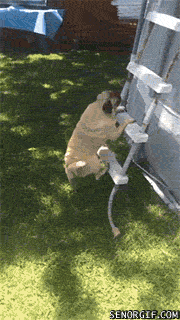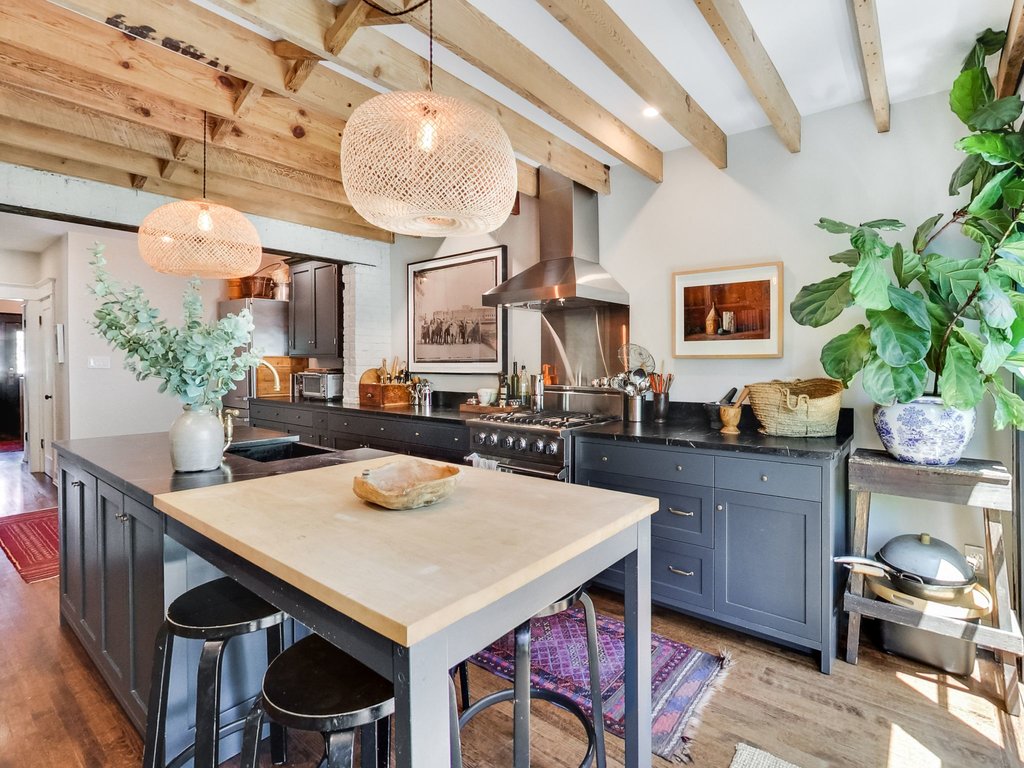Contents
The Property Ladder: How it Works
So how does the property ladder work? I’ll start with a real example:
2000 – Bought a starter condo for $153,500
2002 – Sold the condo for $184,900 (increase in value: $21,400)
2002 – Bought a townhouse for $315,500
2008 – Sold the townhouse for $453,000 (increase in value: $137,500)
2009 – Bought investment condo #1 for $259,000
2009 – Bought my first house for $442,000
2010 – Bought investment condo #2 for $278,000
2013 – Sold investment condo #2 for $320,000 (increase in value: $42,000)
2014 – Sold investment condo #1 for $314,000 (increase in value: $55,000)
2015 – Sold the house for $700,000 (increase in value: $258,000)
2015 – Bought a house for $1,050,000
2019 – Current value of the house: $1,450,000
Total increases in value: $913,900.
Of course, you also need to consider associated expenses (costs to sell, renovate and repair) and income from the investment properties, but this example demonstrates how moving up the property ladder in Toronto can be very profitable.
Here’s our best advice to move up the property ladder:
Making Your First Home Purchase on the Property Ladder
 The hardest step in moving up the property ladder in Toronto is getting on it in the first place. Toronto is not known for its affordability, but the sooner you get into the market, the sooner you can benefit from it. Here are some tips for buying your first home:
The hardest step in moving up the property ladder in Toronto is getting on it in the first place. Toronto is not known for its affordability, but the sooner you get into the market, the sooner you can benefit from it. Here are some tips for buying your first home:
-
- Watch your credit rating – Having a great credit rating will result in lower financing costs, so always pay your bills on time and monitor your credit (you can do that online with Equifax). Lower financing costs = lower payments.
- Downpayment – Yes, a bigger downpayment will lower your overall financing costs, but it’ll mean waiting to get into the market, which might cost you more money in the long term. If you’re buying under $1 million, you can buy with 5% down.
- Property selection – If you’re looking to get in, get out and move up, buy the minimum size and type of property that suits your needs today. Don’t worry about extra bedrooms you won’t use or having the best finishes. The strategy at this point is to get into the market and be ready to move up.
- Time horizon – How long will you have to keep your first home before you can upgrade it? Talk to your REALTOR to get a sense of how homes like the one you’re looking to buy have appreciated over time and what you should expect. Find out how much your second-step home is selling for today and how it’s expected to change.
- Manage Your Career Wisely – How much house you’ll be able to afford in the future will be directly impacted by your income. What’s the normal progression of salaries in your field? What can you do to progress faster?
- The Bank of Mom & Dad – A lot of first-timers have a downpayment or co-signing help from Mom & Dad. While that isn’t an option for everyone, it can help get you in the market faster. If your parents are open to the idea, check out our blog Helping Your Adult Kids Buy a Home – Advice for Mom & Dad.
- Consider a house with two apartments – If you can afford it, buy a duplex. Live in one and rent the other to help pay off the mortgage faster.
Related: First-time Home Buyer Guide
Related: Tips for Saving a Downpayment

Step 2: Hang on!
What To Do In Between Home Purchases
While you’re waiting for your property to increase in value to help you make the next step up the property ladder, there are some things you can do to maximize the value of your current home.
Build equity in your current property
-
- Top up your mortgage payments – Your mortgage is probably amortized over a long period of time and you’ll be paying a LOT of interest. If your mortgage is with a traditional bank, your mortgage likely allows you to double your payments and make a one-time lump payment of up to 10%, once a year. Consider topping up your regular mortgage payment by a few hundred dollars a month, and if you get some kind of annual bonus, dump it onto your mortgage. When you prepay your mortgage, that amount goes straight towards reducing the principal, so it’ll reduce your overall interest payments, shorten the length of your mortgage and help you build equity, which you can put towards your next home.
- Don’t get sucked into the home equity line of credit (HELOC) game – When you get a credit line secured by your home, you deplete your equity – essentially borrowing from yourself for yourself. Because most HELOC’s only require an interest payment and don’t require you to pay off the amount you borrowed, it’s easy for that credit line to grow at the expense of the equity in your home.
- Don’t refinance your property – If your home has gone up in value by $100,000 since you bought it, it can be tempting to refinance it – it almost feels like winning the lottery. But that trip to Europe and that fancy new car won’t help you buy your next home.
- Rent out part of your home – If you live in a duplex or have a basement, this one’s a no-brainer. But if you live in a condo or single-family house, you can still bring in some extra cash by getting a roommate, renting a room to international students for a semester or AirBnB’ing it when you can. Put any rental income directly onto your mortgage to build equity.
Maintain your home
-
- Proper maintenance of your home is critical to making sure you get top dollar when it comes time to sell it. Get your furnace serviced, clean those gutters, make sure your basement isn’t wet and fix any issues with your roof before real damage happens. If you’re in a condo, don’t let your shower get grungy, keep your appliances in tip-top shape and get your condo board involved in any maintenance issues as soon as they happen.
- Don’t underestimate the benefits of keeping your home sparkling clean too.
Enhance the value of your home
-
- Renovations – If your goal is to move up the property ladder, you aren’t living in your ‘forever home’. Only invest in renovations that will bring in an equal or greater return when you sell or help protect the investment you’ve already made. Your agent can guide you on what to do/what not to do.
- Do:
-
- Invest in cosmetic upgrades like paint, new faucets, lighting or doorknobs
- Focus on the unsexy stuff that can’t be ignored, like structure and water issues
- Plant a perennial garden – it will benefit you down the road
- Not sure where to focus? Check out our blog: What to Fix First
- Don’t:
- Reduce the number of bedrooms
- Reduce the number of bathrooms
- Over-personalize your space with bright paint colours, busy wallpaper and built-in storage that might not appeal to everyone
Related: How Do Renovations Affect Value?
Related: Toronto Houses: What To Fix First?
Save More Money
Remember how hard you worked to save for your downpayment? Bring those strategies back to help fund your next move:
-
- Maximize your RSP and invest the tax refund
- Invest found money (or better yet, put it straight onto your current mortgage). Found money includes:
- Salary increases and bonuses
- The bump in pay you get when you max out your CPP/EI contributions (when you reach $57,400 in earnings)
- Monetary gifts
- Consider a side-hustle and direct all those dollars to your next move
Stay on top of prices in your area
While you’re waiting to take that next step, make sure to stay on top of what’s happening to demand and prices in your neighbourhood. You won’t know when it’s the right time to make a move if you don’t know what’s happening in the market. Ask your REALTOR to provide you with regular updates.
Moving Up the Property Ladder: Making Your Next Purchase
Is it time to take that next step? Here’s what you’ll need to do:
- Find out how much your current property is worth – that’ll dictate how big of a move up you can make. Involving a REALTOR early in the process will also help you make a plan on how to maximize the value of your current home when it comes time to sell.
- Talk to a bank or mortgage broker to help you understand if you’ll need to sell your current home to fund the next purchase, or whether you can afford to keep it, rent it and refinance it to free up a downpayment for the new property
- Decide if you’re going to buy or sell first. There’s no easy answer to this dilemma, but your agent can help you understand the risks and benefits of both options.
Related: The First Time Seller Guide
Related: Should You Buy or Sell First?
Moving up Toronto’s property ladder can be a profitable and fun experience…just make sure you have the right REALTOR partner by your side.


